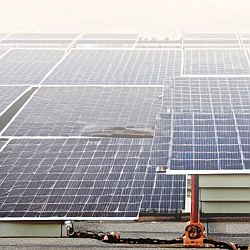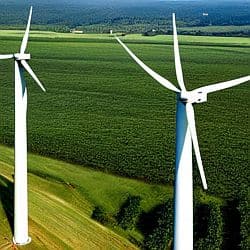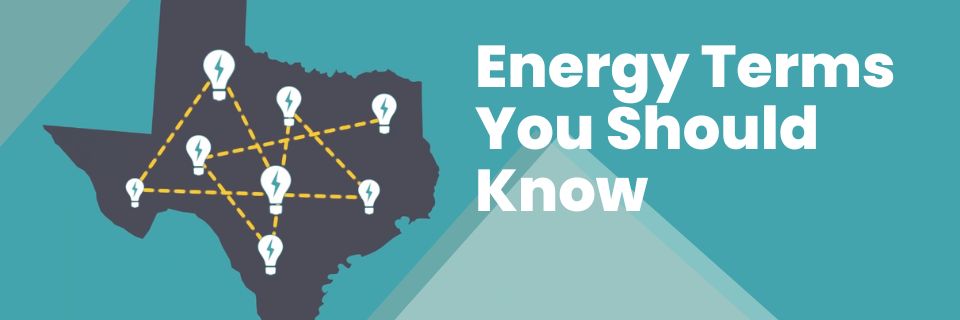Are you tired of hearing the same old energy terms, jargon, and technical words? Well, get ready to have some fun because we’re about to explore the exciting world of energy with a fresh perspective! From wave power to thermal energy, we’ll be diving into the nitty-gritty of the industry and demystifying all the complex terminology. So buckle up and get ready for a wild ride, because we’re about to make energy education fun and accessible for everyone!
Renewable energy
Energy that is produced from natural, sustainable resources such as sunlight, wind, rain, and geothermal heat.
Non-renewable energy
Energy that is produced from finite resources such as coal, oil, and natural gas.
Solar energy
Energy that is produced by harnessing the power of the sun through the use of solar panels or other solar-powered devices.
Wind energy
Energy that is produced by harnessing the power of the wind through the use of wind turbines.
Hydroelectric energy
Energy that is produced by harnessing the power of falling water through the use of hydroelectric dams.
Biomass energy
Energy that is produced by burning organic matter such as wood, crops, or waste.
Geothermal energy
Energy that is produced by harnessing the heat of the earth through the use of geothermal wells.
Nuclear energy
Energy that is produced by splitting atoms in a nuclear reactor.
Nuclear fusion
The process of combining atomic nuclei to form a heavier nucleus, which releases a large amount of energy.
Nuclear fission
The process of splitting the nucleus of an atom into smaller nuclei, releasing a large amount of energy in the process.
Fuel cell
A device that converts chemical energy into electricity through an electrochemical process.
Battery
A device that stores energy chemically and can release it as electricity.
Inverter
A device that converts direct current (DC) to alternating current (AC).
Generator
A machine that converts mechanical energy into electrical energy.
Peaker plant
A power plant that is used to meet periods of high energy demand.
Combined cycle power plant
A power plant that combines two or more thermodynamic cycles in order to improve efficiency.
Natural gas power plant
A power plant that burns natural gas to produce electricity.
Coal power plant
A power plant that burns coal to produce electricity.
Gas turbine
A machine that converts the chemical energy of a fuel into mechanical energy, which is then used to generate electricity.
Steam turbine
A machine that converts steam pressure into mechanical energy, which is then used to generate electricity.
Fuel oil
A type of liquid fossil fuel used primarily in boilers and engines to generate electricity.
Diesel fuel
A type of liquid fossil fuel used primarily in diesel engines to generate electricity.
Conductor
A material that allows electricity to flow through it easily.
Insulator
A material that does not allow electricity to flow through it easily.
Superconductor
A material that has zero electrical resistance at low temperatures.
Load
The amount of electrical power consumed by a device or system.
Grid
The interconnected network of power plants and transmission lines that delivers electricity to homes and businesses.
Solar panel
A device that converts sunlight into electricity, typically made from silicon cells.

Microgrid
A small-scale version of the electrical grid that can operate independently of the main grid.
Deregulation
The process of removing government regulations from the energy industry to allow for more competition.
Energy market
The buying and selling of energy, typically through energy exchanges or over-the-counter markets.
Megawatt (MW)
A unit of power equal to one million watts.
Gigawatt (GW)
A unit of power equal to one billion watts.
Watt-hour (Wh)
A unit of energy equal to one watt of power used for one hour.
Joule (J)
A unit of energy equal to one watt-second.
Energy intensity
The amount of energy required to produce a unit of economic output.
Energy mix
The proportion of different energy sources used in a country or region.
Energy security
The ability of a country or region to ensure a reliable and affordable supply of energy.
Peak load
The maximum amount of electrical power required by a system or grid at any given time.
Base load
The minimum amount of electrical power required by a system or grid at any given
Tidal energy
Energy that is produced by harnessing the power of ocean tides.
Wave energy
Energy that is produced by harnessing the power of ocean waves.
Thermal energy
Energy that is related to temperature and heat.
Kinetic energy
Energy that is associated with motion.
Chemical energy
Energy stored in the chemical bonds of a substance.
Fossil fuels
A non-renewable energy resources includes coal, oil, and natural gas that are formed from the remains of dead plants and animals.
Carbon capture and storage (CCS)
A technology that is used to capture carbon dioxide emissions from power plants and other industrial processes, and store them underground.
Smart grid
An advanced electrical grid that uses digital technology to increase the efficiency and reliability of the power supply.
Electric vehicle (EV)
A vehicle that is powered by an electric motor and a rechargeable battery.
Wind turbine
A machine that converts wind energy into electricity by means of a spinning rotor and turbine blades.

Energy efficiency
The use of technology and processes to reduce the amount of energy required to perform a given task.
Energy storage
The collection and storage of energy, such as in batteries, to be used when needed.
Energy conservation
The effort to reduce energy consumption through a combination of behavioral changes and the use of more energy-efficient technology.
Hydroelectric dam
A dam that harnesses the energy of falling water to generate electricity.
Biomass power plant
A power plant that burns organic matter such as wood, crops, or waste to produce electricity.
Geothermal power plant
A power plant that uses heat from the earth to generate electricity.
Nuclear power plant
A power plant that uses nuclear reactions to generate heat, which is then used to produce steam, which in turn is used to generate electricity.
Transmission line
A high-voltage power line that carries electricity over long distances.
Distribution line
A lower-voltage power line that carries electricity to homes and businesses.
Energy audit
An assessment of the energy efficiency of a building or industrial facility, and recommendations for improvements.
Carbon footprint
The total amount of greenhouse gases produced by human activities, typically measured in terms of carbon dioxide.
Renewable energy certificate (REC)
A certificate that represents proof that 1 megawatt-hour of electricity was generated from a renewable energy source.
Power factor
The ratio of real power (the power used by a load) to apparent power (the total power supplied to the load).
Ancillary services
Additional services that are provided by power plants to help maintain the stability and reliability of the electric grid.
- Tags:
- energy
- terminology
